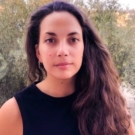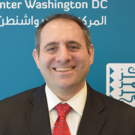Speakers

Diana Buttu
Palestinian-Canadian Lawyer and Analyst

Yara Hawari
Senior Policy Analyst
Al-Shabaka
Moderator
Event Summary
On April 30, 2020, Arab Center Washington DC (ACW) hosted a webinar on “COVID-19 under Apartheid.” The speakers were Diana Buttu, a Palestinian-Canadian lawyer and analyst and former legal advisor to the Palestinian negotiating team; and Yara Hawari, a senior policy analyst at Al-Shabaka and a Palestinian academic, writer, and feminist activist. Yousef Munayyer, a non-resident senior fellow at ACW, moderated the event. What follows is a brief summary of the speakers’ remarks. Please view the accompanying video for their full presentations and analyses.
Yara Hawari said that the Palestinian Authority (PA) declared a state of emergency early on in the pandemic, but despite the employment of serious measures in the West Bank and Gaza to combat the virus, these territories are fundamentally “confronting COVID-19 from the reality of military occupation.” For Gaza, the Israeli blockade since 2007 had devastated the health system; it was struggling well before the coronavirus hit the region. There are now severe shortages of medical supplies and equipment. In addition, multiple Israeli bombardments of Gaza have often targeted hospitals and many of these have not been restored. For the West Bank, Israel’s occupation authorities have deliberately destroyed clinics and halted public health efforts to combat COVID-19 as they continue policies of house demolitions and military raids and arrests. Hawari emphasized that Israel has abdicated all responsibility to protect Palestinians under occupation. She cautioned that any praise the international community is giving Israel for allowing medical supplies into the West Bank and Gaza is misplaced; in fact, it is Israel that must provide health care to the Palestinian population and end its violent occupation. Hawari said that there are 5,000 Palestinian political prisoners—including administrative detainees and women and children—in Israeli jails that are overcrowded and have poor ventilation and are therefore dangerous breeding grounds for COVID-19.
Diana Buttu explored the situation of the Palestinian citizens in Israel and said that the Israeli government is employing intelligence and military tactics to track the spread of the virus. Based on the record of Israel’s military occupation in the West Bank, she noted, these measures will be hard to stop after the pandemic abates and will likely become normalized. Buttu said the Israeli government’s approach has been to supply resources to Jewish Israeli cities, for example for COVID-19 testing, thus allocating few resources for testing in Palestinian communities. Grassroots activists and Palestinian members of the Knesset protested such practices and pushed for inclusion and fairness. Buttu also described as alarming the situation of Palestinian political prisoners and said that Israel has cut them off from their families and their lawyers, so it is very difficult to get any information about the conditions in which they are incarcerated. She noted that although Netanyahu applauded the work of the Palestinian doctors on the front lines in Israel, he also berated them, saying their communities ignore social distancing health directives. To Buttu, this was a racist gesture, in addition to being tokenistic, one that highlights the discriminatory structure of Israel’s system of policies toward Palestinian citizens.

